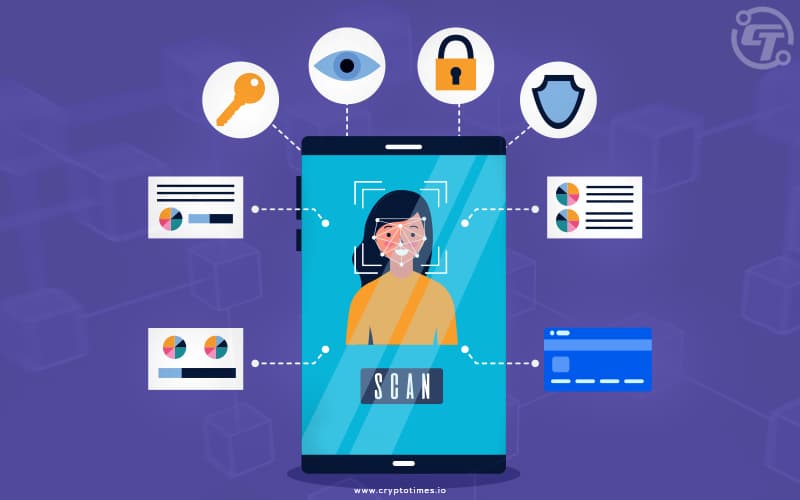Have you ever felt overwhelmed by the complex, time-consuming KYC procedures in finance? Blockchain technology might be the game-changer you’ve been waiting for.
It’s poised to revolutionize the way identity verification is done, making the process faster, more secure, and less redundant. Instead of submitting your documents over and over again, you will only need to do it once.
Financial institutions can then access and verify your data from this blockchain platform, cutting down on time and costs. Plus, you’ll retain control over your personal information.
This article will delve into how blockchain is reshaping KYC processes and its potential benefits for both you and financial institutions.
What is KYC?
KYC, which stands for “Know Your Customer,” is a standard due diligence process used primarily by financial institutions to verify the identity of clients and assess potential risks of illegal activities such as money laundering.
This procedure typically involves collecting and analyzing personal identification documents, financial history, and other relevant information.
By doing so, organizations aim to ensure that they fully understand with whom they are doing business, thus adhering to regulatory compliance and safeguarding against financial crimes.
Centralized KYC Systems Challenges
The traditional KYC process is fraught with challenges: a lack of standardization, high costs, and protracted verification times. Each interaction with a new bank triggers another round of verification, exacerbating frustration.
For financial institutions, this manual and segmented process is not only labor-intensive but also costly, with expenses often transferred to customers through fees. Moreover, these inefficiencies can tarnish customer experiences, potentially deterring further engagement with the bank. These challenges underscore the need for a more streamlined and cost-effective solution, possibly through blockchain technology.
Enhancing User Experience With Blockchain
Blockchain technology can greatly improve the experience of your customers by simplifying and streamlining the KYC (Know Your Customer) process. This technology offers several benefits that can enhance user experience and make the process more efficient.
1. Simplified Onboarding Process
With blockchain, customers can create a profile on a distributed ledger system that can be accessed by multiple financial institutions. This eliminates the need for repetitive KYC processes with each institution, saving time and effort for both customers and institutions.
2. Real-time Updating of User Data
Through the use of smart contracts, customer information is automatically updated when new documents are provided. This ensures that the data is always accurate and up-to-date, eliminating the need for manual updates and reducing the risk of errors.
3. Faster processing and verification of customer data
This leads to a lowered turnaround time. This means that customers can have their KYC process completed more quickly, reducing delays and improving overall efficiency.
Casper.network, for instance, uses advancements like Proof of Stake algorithms to create blockchain-based KYC platforms that not only enhance security but also operate more energy-efficiently.
Transforming Identity Verification in Finance
Blockchain technology automates the screening process, reducing operational costs and verification times from weeks to minutes. Its cryptographic features secure customer data, allowing for the monetization of prior KYC compliance investments.
The technology facilitates data and document synchronization, preventing duplication of digital identity and conserving resources. An immutable, transparent log of changes and verifications simplifies access rights management to private customer data, liberating customers from repetitive onboarding procedures. The outcome is a more streamlined, cost-effective, and reliable KYC process.
Conclusion:
In the finance sector, blockchain technology promises to be the much-needed catalyst for change in KYC processes, offering a seamless, secure, and cost-effective alternative that benefits both financial institutions and customers.
By simplifying identity verification, reducing red tape, and fostering a user-friendly environment, blockchain stands at the forefront of redefining financial security and customer experience.
FAQs
Q1. What is the difference between a traditional KYC system and a blockchain-based KYC system?
Ans: Traditional KYC systems involve manual verification of customer identities, often resulting in repetitive processes and information silos among financial institutions. In contrast, blockchain-based KYC systems offer a decentralized and secure ledger where customer data can be verified once and shared with other parties, eliminating duplication and increasing efficiency.
Q2: How is blockchain used for KYC AML compliance?
Ans: Blockchain’s immutable ledger enables secure and transparent recording of customer data and due diligence processes. For KYC AML compliance, this means that once an identity is verified and recorded on the blockchain, it can be accessed by authorized parties, ensuring that AML checks are consistent and up-to-date with less room for fraud or errors.
Q3. How can blockchain simplify KYC and AML processes?
Ans: Blockchain can streamline KYC and AML by providing a single source of truth for customer identity data. It facilitates instant sharing of verified information across organizations, reduces the risk of document forgery, and makes it easier to track and manage customer risk profiles and due diligence processes over time.
Q4. How to implement KYC using blockchain?
Ans: Implementing KYC using blockchain involves several steps:
1. Define the framework for data privacy and regulatory compliance.
2. Choose a suitable blockchain platform that aligns with the privacy and scalability needs of KYC processes.
3. Develop a user interface for customers to submit their KYC documents.
4. Create smart contracts to automate the verification and updating process.
5. Establish a consortium of trusted parties (banks, financial institutions, etc.) who will function as nodes on the blockchain to validate and access the KYC data.
6. Integrate the blockchain system with existing financial software and tools for a seamless transition.






